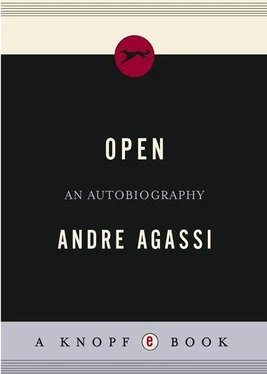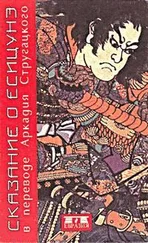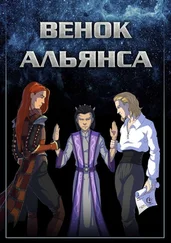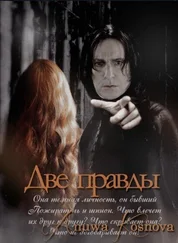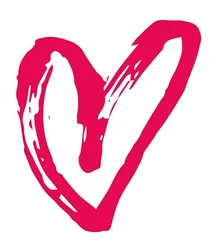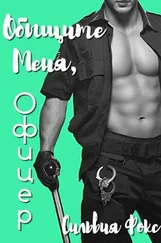Unknown - i a3f9967826fa0ec9
Здесь есть возможность читать онлайн «Unknown - i a3f9967826fa0ec9» весь текст электронной книги совершенно бесплатно (целиком полную версию без сокращений). В некоторых случаях можно слушать аудио, скачать через торрент в формате fb2 и присутствует краткое содержание. Жанр: Старинная литература, на английском языке. Описание произведения, (предисловие) а так же отзывы посетителей доступны на портале библиотеки ЛибКат.
- Название:i a3f9967826fa0ec9
- Автор:
- Жанр:
- Год:неизвестен
- ISBN:нет данных
- Рейтинг книги:5 / 5. Голосов: 1
-
Избранное:Добавить в избранное
- Отзывы:
-
Ваша оценка:
- 100
- 1
- 2
- 3
- 4
- 5
i a3f9967826fa0ec9: краткое содержание, описание и аннотация
Предлагаем к чтению аннотацию, описание, краткое содержание или предисловие (зависит от того, что написал сам автор книги «i a3f9967826fa0ec9»). Если вы не нашли необходимую информацию о книге — напишите в комментариях, мы постараемся отыскать её.
i a3f9967826fa0ec9 — читать онлайн бесплатно полную книгу (весь текст) целиком
Ниже представлен текст книги, разбитый по страницам. Система сохранения места последней прочитанной страницы, позволяет с удобством читать онлайн бесплатно книгу «i a3f9967826fa0ec9», без необходимости каждый раз заново искать на чём Вы остановились. Поставьте закладку, и сможете в любой момент перейти на страницу, на которой закончили чтение.
Интервал:
Закладка:
Blue.
What does blue mean?
I think it means—you know.
A boy?
I think it means I’m pregnant.
She does the test again. And again. Blue every time.
It’s what we both wanted, and she’s delighted, but frightened too. So many changes. What will happen to her body? We only have a few hours left together before I catch a red-eye to Miami and she flies to Germany. We go out to dinner, to Matsuhisa. We sit at the sushi bar, holding hands, telling each other it’s going to be fantastic. I don’t realize until later that this is the same restaurant where it all unraveled with Brooke. Just like tennis. The same court on which you suffer your bloodiest defeat can become the scene of your sweetest triumph.
After we’re done eating and crying and celebrating, I say: I guess we should get married.
Her eyes widen. I guess so.
There will be no hoopla, we decide. No church. No cake. No dress. We’ll do it on a free day during a lull in the tennis season.
I SIT DOWN FOR AN HOUR-LONG INTERVIEW with Charlie Rose, the genial TV host, during which I lie through my teeth.
I don’t mean to lie, but each question Rose asks seems to come with an implied answer, an answer he’s ready and eager to hear.
Did you love tennis at an early age?
Yes.
You loved the game.
I would sleep with a racket.
You look back on what your father did for you, do you say now: I’m glad that he gave me those early things that made me tough?
I’m definitely glad that I play tennis. I’m glad my dad started me in tennis.
I sound as though I’ve been hypnotized, or brainwashed, which isn’t new. I say the same things I’ve said before, the same things I’ve mouthed during countless news conferences and interviews and cocktail-party conversations. Are they lies if I’ve come to partially believe them? Are they lies if, through sheer repetition, they’ve taken on a veneer of truth?
This time, however, the lies sound and feel different. They hang in the air, they have a bitter aftertaste. When the interview is over I feel a vague queasiness. Not guilt so much, but regret. A sense of missed opportunity. I wonder what would have happened, what Rose might have done or said, how much more we might have enjoyed the hour, if I’d leveled with him, and with myself. Actually, Charlie, I hate tennis.
The queasiness stays with me for days. It gets worse when the interview airs. I promise myself that one day I’ll look an interviewer of Rose’s stature right in the eye and tell him the unvarnished truth.
AT THE 2001 FRENCH OPEN, an invisible person is in my box. Stefanie is four months along, and the presence of our unborn child gives me the legs of a teenager. I reach the round of sixteen and play Squillari, with whom I have such history. It feels as we walk onto the court as if we have more history than France has with England. The sight of Squillari takes me straight back to 1999—one of the toughest matches of my career. One of the turning points. If he’d beaten me that day, two years ago, I don’t know if I’d be here. I don’t know if Stefanie would be here—and therefore our unborn child wouldn’t be here.
Inspired by these thoughts, I’m locked in. As the match wears on, I grow fresher, more focused. My concentration is unbreakable. An unruly fan yells something obscene about me. I laugh. I take a nasty fall, twisting and cutting my knee. I shrug it off. Nothing can deter me—least of all Squillari. Gradually I lose all awareness of him. I’m out here by myself, more so than usual.
In the quarters I play Sébastien Grosjean, from France. I breeze through the first set, losing only one game, then Grosjean taps into some hidden reservoir of faith that he can win.
Now our self-confidence is equal, but his shot-making is superior. He breaks me to go up 2–0, then breaks me again and wins the second set as easily as I won the first.
In the third set he breaks me right away, winning the game with a pretty lob. Then he holds, then breaks me again. I’m done for.
In the fourth set I have chances to break his serve, but I can’t capitalize. I hit a backhand that’s weak, unworthy of me, and as I watch it sail wide I know I’m running out of time. He’s serving for the match, I’m holding on by my fingernails, and then I net a forehand. Match point. He closes me out with an ace.
Afterward, reporters ask if my concentration was broken by the arrival of President Bill Clinton. Of all the reasons I’ve ever heard, and offered, for losing a match, even I couldn’t come up with one that lame. I didn’t even know Clinton was there, I tell them. I had other things on my mind. Other invisible spectators.
I BRING STEFANIE TO GIL’S GYM, under the guise of a workout. She’s beaming, because she knows why we’re really here.
Gil asks Stefanie if she’s feeling all right, if she’d like something to drink, if she’d like to sit.
He guides her to an exercise cycle and she mounts sidesaddle. She studies the shelf Gil has built along one wall, to hold the trophies from my slams, including those I’ve had replaced since my post-Friends tantrum.
I fiddle with a stretching cord and then say: So, uhh, Gil, listen. We’ve picked out a name for our son.
Aw. What is it?
Jaden.
I like that, Gil says, smiling, nodding. Yes I do. I like that.
And—we also think we’ve got the perfect middle name.
What’s that?
Gil.
He stares.
I say, Jaden Gil Agassi. If he grows up to be half the man you are, he’ll be phenomenally successful, and if I can be half the father you’ve been to me, I’ll have surpassed my own standards.
Stefanie is crying. My eyes are filled with tears. Gil is standing ten feet away, in front of the leg extension machine. He has his trademark pencil behind his ear, his glasses on the end of his nose, his da Vinci notebook open. He reaches me in three steps and folds me in his arms.
I feel his necklace against my cheek. Father, Son, Holy Ghost.
I’M CLOSE TO BEATING RAFTER at the 2001 Wimbledon. Fifth set, serving for the match, two points from winning, I net a tentative forehand. On the next point I miss an easy backhand. He’s broken back. Now it’s he who thinks he’s close to beating me.
I shout, Motherfucker.
A lineswoman promptly reports me to the umpire.
I get an obscenity warning.
Now I can think of nothing but this busybody lineswoman. I lose the set, 8–6, and the match. It feels disappointing and unimportant at the same time.
Along with Stefanie’s health and our budding family, my thoughts are never far from my school, which is due to open this fall, with two hundred students, grades three through five—though we have plans to expand quickly to include kindergarten through twelfth grade.
In two years we’ll have the middle school built. In another two years, the high school.
I love our concepts, our designs, but I’m particularly proud of our commitment to putting money behind our ideas. Lots of money. Perry and I were horrified to learn that Nevada spends less than almost any other state on education—$6,800 per pupil, as compared with the national average of nearly $8,600. Thus, at my school we’ve vowed to make up the difference, and then some. Through a mix of state funding and private donors, we’re going to invest heavily in kids and thereby prove that in education, as in all things, you get what you pay for.
We’re also going to keep our kids in school more hours each day—eight instead of Nevada’s customary six. If I’ve learned nothing else, it’s that time and practice equal achieve-ment. Further, we’re going to insist that parents become intimately involved with the school.
At least one parent per child will be required to spend twelve hours a month volunteering as a student aide in the classrooms or a monitor on school trips. We want parents to feel like shareholders. We want them fully committed and responsible for getting their children into college.
Читать дальшеИнтервал:
Закладка:
Похожие книги на «i a3f9967826fa0ec9»
Представляем Вашему вниманию похожие книги на «i a3f9967826fa0ec9» списком для выбора. Мы отобрали схожую по названию и смыслу литературу в надежде предоставить читателям больше вариантов отыскать новые, интересные, ещё непрочитанные произведения.
Обсуждение, отзывы о книге «i a3f9967826fa0ec9» и просто собственные мнения читателей. Оставьте ваши комментарии, напишите, что Вы думаете о произведении, его смысле или главных героях. Укажите что конкретно понравилось, а что нет, и почему Вы так считаете.
